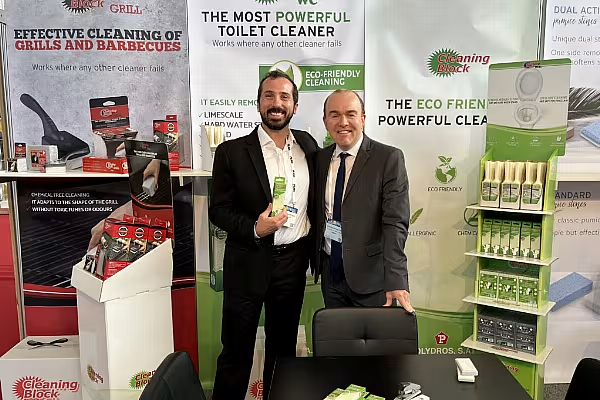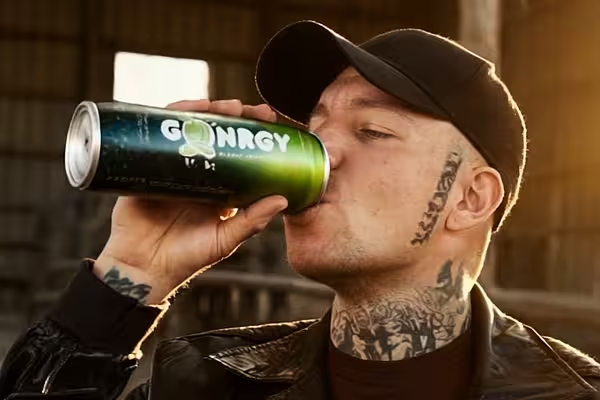Polydros, S.A. has been manufacturing cellular glass products since 1961 and boasts a long-standing commitment to recycling and the circular economy.
Among the Spanish firm’s most popular products are pumice stones for pedicures and skincare – including the popular Vulcan range – as well as cellular glass-based cleaning products that can remove encrusted dirt and stains from hard-to-clean surfaces, without the use of chemicals.
At the recent PLMA World of Private Label trade show in Amsterdam, ESM editor Stephen Wynne-Jones spoke to Polydros chief executive Guillermo Pietsch.
ESM: Can you tell me a bit about the history of Polydros? The company has been around for almost 60 years now. How did this concept of using creatively recycled glass come about?
Guillermo Pietsch: It all started with my grandfather. Polydros is a family business that initially focused on producing insulation material – thermal insulation for buildings – which had properties similar to pumice stone.
Then, in the late seventies, we expanded into the market by introducing pedicure products to supermarkets. We began with standard pumice stones and later developed the dual-action pumice stone, which has become our best-selling product to date. It has two faces.
Was it a traditional move for a business in building insulation to venture into a different market category like this? It seems like quite a departure from the norm.
Indeed, it is quite different, however, at the time, they realised that our product had abrasive properties that were perfect for tackling hard skin on feet – similar to a pumice stone. This idea proved to be a good one.
Later, in the eighties, the company expanded into developing cleaning products. We began with pumice stones specifically designed for cleaning griddles. It became our best-selling product in Spain. We have one variant for barbecues and another for flat-top griddles, both of which have been very successful.
Subsequently, we further expanded our product range to include grills and toilet-cleaning products, which are currently working really well.
The concept behind this is cellular glass. How do you define cellular glass?
Cellular glass is a type of foam glass, and the term ‘cellular’ refers to the fact that it is composed of numerous interconnected cells. These cells are like small pores within the glass material.
So, it’s glass that has been taken down to a powder and reformed as a foam, essentially.
Yes. We grind it, make the powder, and then, through 25- to 30-metre kilns, we develop the cellular glass.
At the moment, there is a lot of focus on sustainability, recycling, and the circular economy. You have been involved in these initiatives for a long time, so when you speak to retailers and brands, is this already built into your operations? Do you position yourselves as a sustainability-first company?
In fact, we have been actively engaged in recycling for over 60 years. It is something we are really proud of. Our focus is on giving glass a new lease of life, even when it no longer serves its original purpose.
By doing so, we contribute to reducing the need for chemicals and the use of plastics in the production of alternative cleaning products or pedicure products. We take great pride in our company’s long-standing commitment to producing recycled products.
It’s not just a new thing you’re trying – this is the foundation on which the company was founded. Am I right in thinking, then, that my bottle of Heineken from yesterday evening could become, in time, one of your pumice stones? Is that where the glass comes from, or is it related to the supply chain?
Yes, in theory, but we source our glass from windows and transparent glass. We need to use glass that doesn’t contain colour, so it doesn’t affect our production. In the future, we are thinking about using glass bottles as well, so it will be a nice addition to our production and the recycling process.
To finish, in terms of PLMA, what was the big product that you were pushing? Was there an innovation or new concept that you launched?
The product that we believe has the most potential is the toilet cleaner. It solves a common issue that many people face in their homes: hard-water stains. These stains are challenging to remove, especially in areas with persistent water problems.
We have developed a solution that effortlessly tackles this problem, and it is way better than any other chemical product available on the market. We are pushing this product right now, and it’s working really well. It has already gained traction in the market, but our goal is to further expand its reach.
It is indeed interesting because there are numerous toilet cleaners available, and most of them contain chemicals, to varying degrees. Some may claim to be ‘green’ or environmentally friendly, but your product takes a completely different approach. It does not rely on such chemicals and offers a distinct alternative.
Yes, it is quite innovative. As you mentioned, people are accustomed to using chemicals to remove such stains, but sometimes these chemicals are ineffective and also contribute to environmental pollution. Our eco-friendly alternative offers a much more effective solution.
When using our product, you may notice that it leaves a slight residue on the surface, but its composition is similar to sand. Therefore, when it goes down the drain, it reverts back to a sand-like form, completing the cycle of life in the environment.
For more information, visit www.polydros.es.
© 2023 European Supermarket Magazine – your source for the latest A-brand news. Sponsored post. Click subscribe to sign up to ESM: European Supermarket Magazine.














